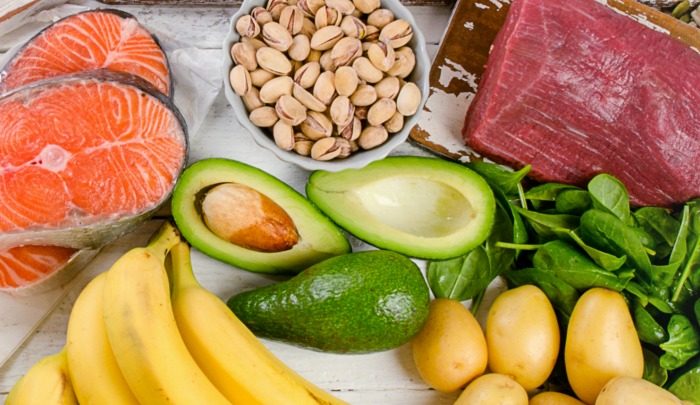
Eating food in sufficient quantities to provide folate is important for everyone. That means eating real food and avoiding junk food. It's a folate food guideline.
Folate Food Guidelines
Read: Benefits, Functions and Food Sources of vitamin B2
This is achieved when having consumed enough vegetables, which are the best sources of folate, along with other foods including fruits, nuts, and meats.
Inadequate folate levels increase the risk of many health problems. These include various cancers, osteoporosis, diabetes, Alzheimer's and other dementias, stroke and heart disease, neural tube defects, spontaneous abortions, male infertility, and possibly Down syndrome.
Many foods contain natural folate. Raw and fresh spinach, for example, maybe one of the highest-valued folate foods.
In a food, folate reduction occurs with food storage (folate breaks down over time), which is carried out during freezing, canning, and cooking.
But if you eat enough, and still have high homocysteine, it may mean your folate is still low and may require natural supplements.
The main reason folate directly affects overall health and wellness is that this nutrient is necessary for a biochemical process called methylation.
Methylation is essential for the proper functioning of almost all body systems. It happens billions of times every second, playing a pivotal role in:
- Repairs DNA damage.
- Detoxification.
- Brain function.
- Controls inflammation.
- Controls which genes are turned on or off (such as for cancer, diabetes, heart disease, and Alzheimer's).
Folate-Rich Foods
The chart below lists some of these one-serving folate-rich foods, with amounts (in mcg) of natural folate.
- Avocado 118
- Spinach 263
- Asparagus 243
- Bit 136
- Lettuce leaf 119
- Lentils 358
- brussels sprouts 157
- Broccoli 168
- Green beans 94
- Orange 54
- Papaya 112
- Turkey 486
- beef 221
Source: USDA database.
It's not the only food rich in natural folate, so the variety is important – legumes, broccoli, Brussels sprouts, chicken, and many other foods also contain significant levels of folate.
The loss of water-soluble folate during cooking is insignificant unless the food is boiled in water and the water is removed. Steaming, baking, sautéing and other cooking forms are still okay. However, raw vegetables need us to chew well to get folate in these foods.
For this reason, too, mixing is most effective in obtaining high amounts of folate in foods. An example is the addition of raw spinach to smoothies.
Increase Folate for C677T
In addition to getting natural folate from a healthy diet, other nutrients help its regulation. This is especially important for individuals who genetically do not compromise with folate consumption—those with the C677T genotype.
1. Consume apples, especially the peel.
This can help the body compensate for genetic deficiencies, thus preventing the adverse effects of problems such as low folate and high homocysteine. This may be because this fruit contains a lot of phytonutrients, especially those that function as antioxidants.
2. Consume fruits and vegetables
Its high content of antioxidants can affect our health in many ways. One is that this nutrient can protect against genetic disorders, including the C677T genotype. eating more fruits and vegetables not only provides the vitamins and minerals that the body needs for good health but also protects us in other ways, many of which are still not fully understood.
3. Omega-3 fats from fish oil
It has been shown to positively affect genetic expression, and improve the function of enzymes that the body needs to metabolize folate.
4. Riboflavin (vitamin B2) and magnesium
Choline
Those with genetic variants that can compensate for low folate status to some degree can take advantage of more of the choline nutrient.
This includes helping to reduce abnormally high homocysteine levels. Increased need for choline, especially in those who are below higher stress levels, and with asthma.
Based on the amount needed to prevent liver dysfunction, the government only recommends about 500 mg of choline for adults. But even this amount is very difficult to obtain from a diet without consuming eggs every day – something that some sources recommend not to do.
More importantly, the metabolic need for choline is likely higher in individuals with a genetically compromised folate status. At the same time, choline also helps protect against genetic damage, which is the earliest functional effect of its deficiency.
That’s the information about folate or vitamin B9 food guidelines, may it be useful!










